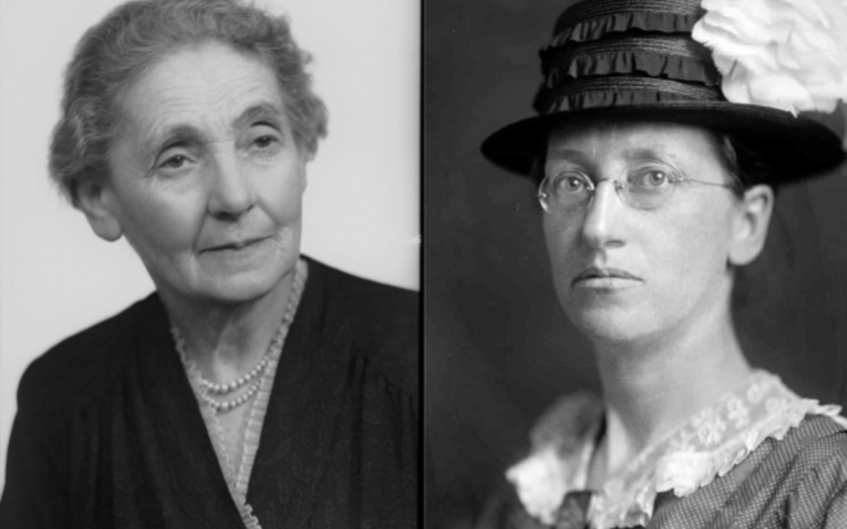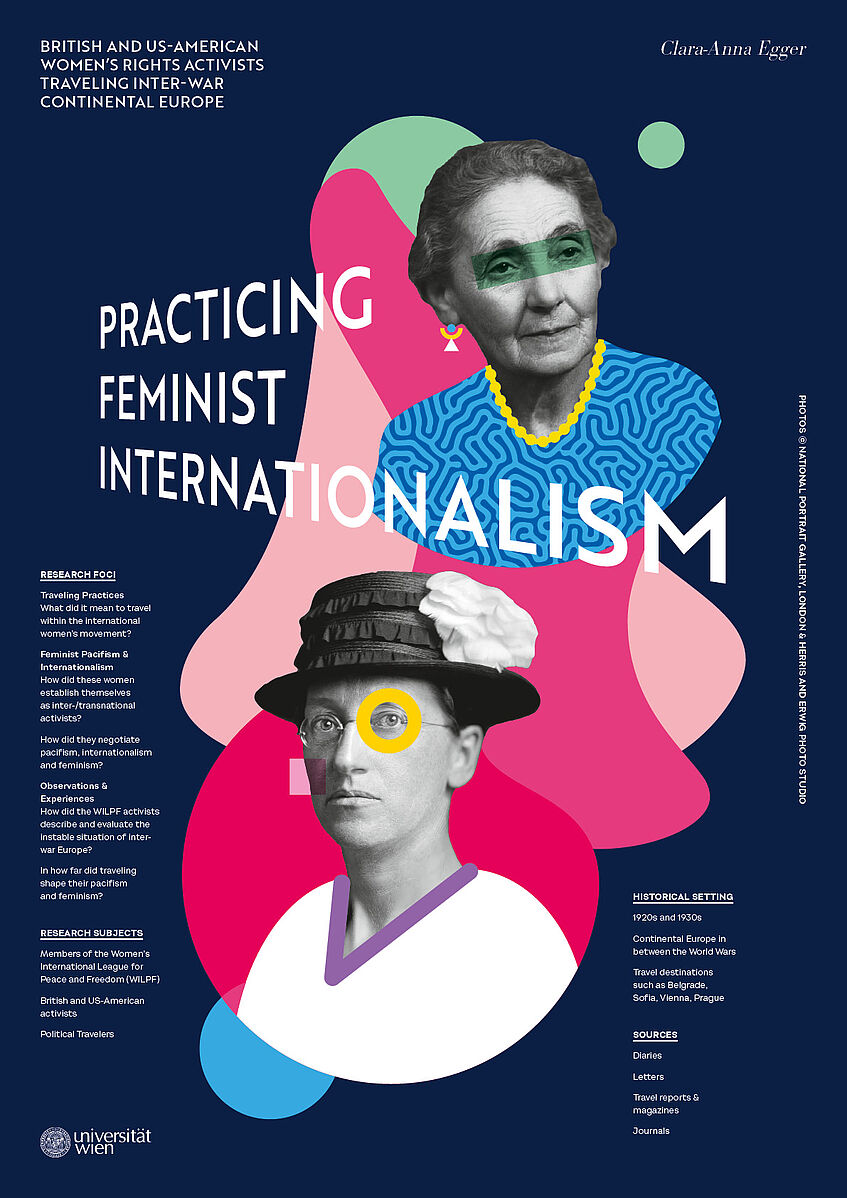Practicing Feminist Internationalism: British and US-American Women’s Rights Activists Traveling Inter-War Continental Europe
Practicing Feminist Internationalism: British and US-American Women’s Rights Activists Traveling Inter-War Continental Europe
Supervisors: a.o. Univ.Prof.in Dr.in Johanna Gehmacher und Univ.-Prof.in Ingrid Sharp
Project Staff: Mag.a Clara-Anna Egger
Funding: Vienna Doctoral School of Cultural and Historical Studies
Duration: 01. Oktober 2020 - 01. Oktober 2023
After the Great War, the women’s rights movement successfully reconstituted and came to fore with the aim to further facilitate cross-border connections and expand the international feminist network born out of the suffrage movement. The three major international women’s movement organizations (ICW, IAW and WILPF) sought to adapt to a new prevalent sense of internationalism after World War I. In my thesis, I will focus on the lesser-researched Women’s International League for Peace and Freedom; the oldest, still existing women’s peace organization in the world. For the members of WILPF feminism and pacifism were closely intertwined, and with the deeply-rooted conviction that without permanent peace, women will not obtain equality to men, WILPF tried to advance their cause by using various methods. One of such were the travels of the members who could afford to voyage extensively. In my project, I will follow the tracks of some members of the British and US-American WILPF sections on their journeys through Continental Europe from 1919 to 1939. In analyzing autobiographical writings (e.g. letters, diaries) and the official WILPF documents, I seek to demonstrate how the activists used traveling to advocate for peace and women’s rights. Furthermore, I will investigate how the feminist pacifists evaluated the instable situation in Continental Europe after the Great War and the years preceding WWII.


